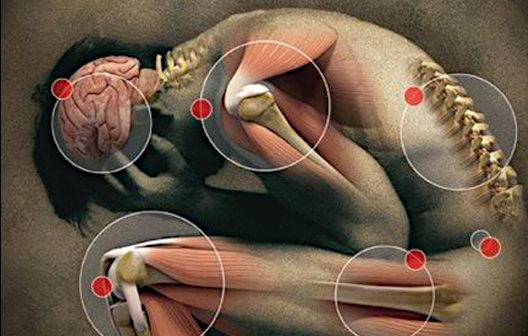Image: Agency for Healthcare Research and Quality (DHHS)
Ongoing Federal Review on Cannabis and Pain Shows Some Relief
Does medical marijuana have the potential to help reduce opioid use in chronic pain patients? Late in 2020, a U.S. Government agency set out to answer two questions related to cannabis and pain. First, what if any benefits there are in using cannabinoids for chronic pain, and second, what are the harms of cannabinoids? This week they released results from this round of testing.
The Test
The Agency for Health and Research Quality (AHRQ) is one of many agencies under the Department of Health and Human Services. Their cannabis ‘living’ systematic review (continually updated) assesses the effectiveness and harms of cannabis and other plant-based treatments for chronic pain conditions. This first review used plant-based compounds (PBCs) similar to opioids with potential for addiction, misuse, and serious adverse effects and measured them against other PBCs such as cannabis derivatives. The findings are intended for policymakers, financiers, chronic pain researchers, and clinicians who treat pain.
The report for the living systemic review will be updated quarterly.
The Review
This was the AHRQ’s first study for the ongoing living systematic review on cannabis and other plant-based treatments for chronic pain. Researchers grouped cannabis-related products based on their tetrahydrocannabinol (THC) to cannabidiol (CBD) ratio using the categories: high-THC to CBD, comparable THC to CBD, and low-THC to CBD (including CBD only). Not included in this study, a new placebo-controlled randomized controlled trial (RCT) of oral CBD1 and an observational study of plant-based comparable THC to CBD versus synthetic CBD. This added to a total of 21 RCTs and 8 observational studies. In patients with chronic (mainly neuropathic) pain with short-term treatment (4 weeks to <6 months).
The Results (Small, Medium, Large)
The AHRQ review suggests comparable THC to CBD ratio oral spray is associated with small improvements in pain severity and overall function versus a placebo. There was no increase in the risk of serious adverse events or withdrawal due to any events. Potentially, there is a high increased risk of dizziness and sedation and a moderately increased risk of nausea.
Results measured after testing synthetic THC to CBD suggest moderate improvement in pain severity, no effect on overall function and increased risk of sedation, as well as a large increased risk of nausea versus a placebo. The synthetic THC is probably associated with the large increased risk of dizziness, according to the reported results.
The extracted whole-plant high THC to CBD ratio combination while offering some relief, may be associated with large increases in the risk of study withdrawal due to adverse events and dizziness versus placebo.
Whole plant and “patient’s choice” choice products low in THC to CBD produced insufficient findings to draw any conclusion.
Not reported in the report were other adverse outcomes such as psychosis, cannabis use disorder, cognitive deficits, and outcomes on the impact cannabinoid use has on the use of opioids.
Take-Away
One of the many potential medical uses of marijuana is pain relief. This has become particularly important as it’s desirable to have safer alternatives to opioid-based pain relievers. Taxpayer-funded research on pain relief is ongoing at the AHRQ. The agency will be reporting its findings quarterly. The most recent review, albeit a very small sample size, found various THC:CBD ratios provided different levels of relief and different risk levels.
Managing Editor, Channelchek
Suggested Reading
 Opportunities in the Rapidly Growing Pain Management Sector
|
 The NFL is Providing Funds for a Marijuana Study Related to Injured Athlete Use
|
 The Future of Cannabis Crosses Many Industries
|
 Federal Law Questions Still Loom for the Cannabis Industry
|
Sources
https://effectivehealthcare.ahrq.gov/products/plant-based-chronic-pain-treatment/living-review
https://effectivehealthcare.ahrq.gov/products/plant-based-chronic-pain-treatment/protocol
https://effectivehealthcare.ahrq.gov/products/form/plant-based-chronic-pain-treatment-annual-update
Stay up to date. Follow us:

|

